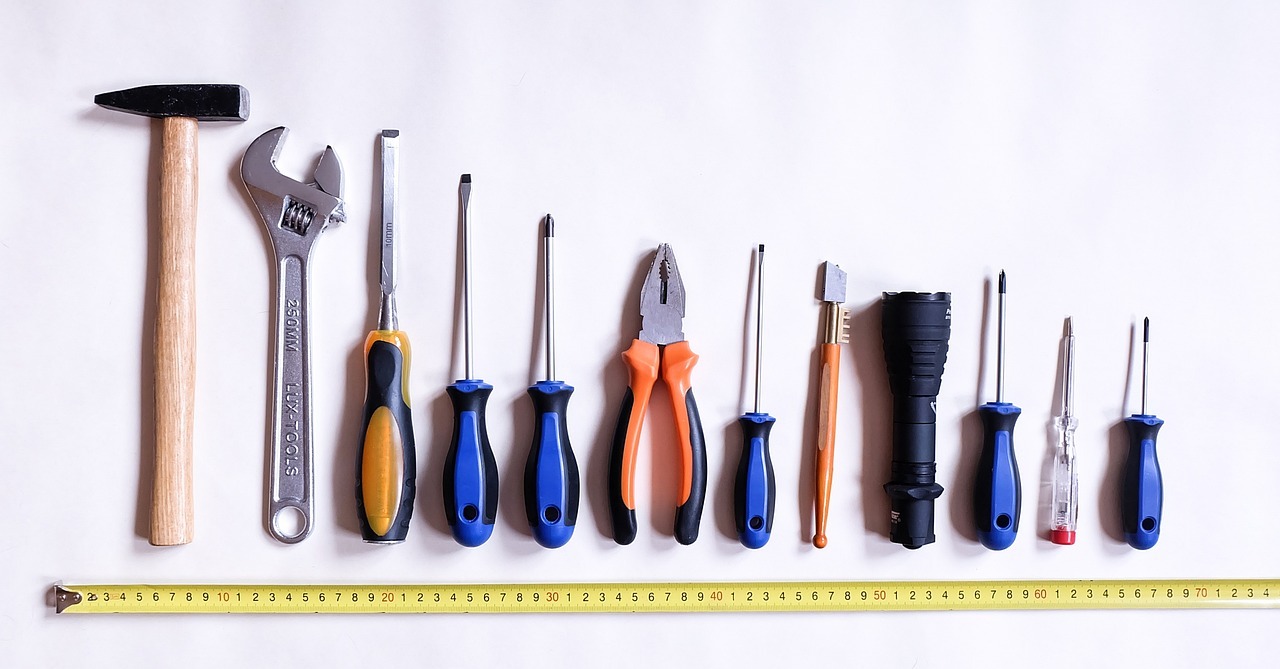Did you know residential homes are responsible for almost 20% of all U.S. carbon emissions?This powerful fact reveals why a remarkable shift is underway— green home builders North Carolina are quietly leading a transformation that is reshaping not just homes, but the quality of everyday living. As more families seek healthier, more efficient, sustainable homes , North Carolina’s home building industry stands at the forefront, offering innovative, environmentally responsible solutions. Keep reading to discover how these pioneering builders are setting new standards, creating thriving communities, and turning eco-friendly dreams into reality.Revealing How Green Home Builders North Carolina Are Changing the Way We LiveStartling research shows that homes account for nearly 20% of U.S. carbon emissions—discover how green home builders North Carolina are leading a quiet revolution to turn this around.This post explores the undeniable shift towards green home, green building, and exceptionally energy efficient home design across North Carolina.There’s a growing momentum in North Carolina, where green home builders are redefining what it means to live sustainably. The connection between everyday living and environmental stewardship has never been tighter. Homeowners are demanding more: lower energy bills, healthier indoor air quality , and homes that last for generations—all while minimizing environmental impact.These shifts aren’t just about the environment; they also represent better living for North Carolina families, combining state-of-the-art building practices with the warmth of a well-loved home. From bustling Raleigh suburbs to peaceful Asheville hillsides, you’ll discover how high-performing, energy-efficient homes are flipping conventional building wisdom on its head.With North Carolina at the crossroads of innovation and tradition, the region’s green home builders have become leaders in adopting new green technologies—integrating powerful green features that prioritize both efficiency and comfort. Residents are seeing direct results: substantial savings on utility bills , less maintenance, and a deep sense of pride in contributing to a sustainable future.As incentives and local support for green building grow, choosing a green home builder North Carolina becomes less of a niche and more of a smart, forward-thinking decision for families who want to turn their homes into a positive legacy.As you consider the benefits of sustainable living, it's also important to think about the essential steps every new homeowner should prioritize. For a practical guide on setting up your home for long-term comfort and efficiency, explore these essential priorities for new homeowners that can help you make the most of your green investment.What Sets Green Home Builders North Carolina Apart in the Sustainable Home Industry?Green home builders North Carolina distinguish themselves through a holistic approach that merges cutting-edge sustainability with practical design. Unlike standard construction, these builders focus on whole-home energy efficiency , ensuring every component—from attic insulation and sealed crawl spaces to efficient windows and advanced HVAC systems—exceeds traditional standards. By integrating solar panels, high-efficiency appliances, and rainwater harvesting systems, they create not just a house, but a high-performing, healthy environment tailored for North Carolina’s unique climate.Beyond materials and technology, the top green home builders in North Carolina always pursue third-party certifications to affirm their commitment to excellence. Certifications like ENERGY STAR, LEED, and the North Carolina Green Built program set rigorous benchmarks for building performance, air quality, and overall sustainability. Certified home status guarantees that buyers aren’t just taking the builder’s word—they’re getting homes verified for low energy use, durability, and high indoor air quality.What’s more, these home builders are guided by a mission to elevate community wellbeing. Neighborhoods designed by leading green home builders often offer communal green spaces, enhanced walkability, and a sense of togetherness. This approach creates neighborhoods rooted in both environmental responsibility and strong social ties, creating a legacy that extends far beyond one generation.Green Build Methods and Certified Home Standards in North CarolinaExplore advanced green build techniques and how certified home standards raise the bar for quality in green homes.The backbone of green building in North Carolina is adherence to progressive building standard protocols and green certified practices. From meticulous site planning that maximizes natural light and landscape conservation, to the use of non-toxic, regionally sourced materials, today’s green home builders ensure that every step supports long-term sustainability. Leading builders deploy continuous insulation, advanced framing, and high-efficiency mechanical systems to control moisture while enhancing energy efficiency , resulting in comfortable, efficient homes with superior air quality.Green certification programs such as ENERGY STAR and LEED go deeper, demanding airtight construction, enhanced attic and crawl space insulation, water-saving features like flow faucets, and robust indoor air management. These standards require ongoing training and external verification, meaning only the most committed builders can deliver truly green built homes. By meeting or exceeding these requirements, North Carolina’s green builders guarantee home energy savings and a healthier living experience.Additionally, certified home standards continuously evolve, reflecting advances in sustainable technology and research into building science. Top-tier builders regularly update their processes to integrate new energy recovery ventilation, smart home controls, and healthy building materials—ensuring your green home stays at the cutting edge for comfort, efficiency, and longevity.The Green Home Advantage: Efficiency, Air Quality, and Enhanced ComfortReview the benefits of choosing green home builders North Carolina: improved air quality, superior energy efficiency, and high-performing efficient homes.One of the most compelling reasons North Carolinians turn to green home builders is the measurable improvement in daily comfort and health. Energy Star appliances, high-grade air filtration systems, and robust insulation work together to maintain your home’s temperature, eliminate drafts, and keep pollutants at bay. The results? Consistently low energy bills , fewer allergies, and a living space that feels fresh, clean, and inviting regardless of season.Air quality is a core benefit. Unlike traditional builds—which often suffer from poor ventilation and mold-prone, unsealed crawl spaces— green homes are specifically engineered for healthy airflow and humidity control. By using low or zero-VOC paints and finishes, and efficient ventilation systems, these homes protect your family from hidden hazards while conserving resources.Builders committed to green standards also design for resilience and comfort. From soundproofing to daylighting, every aspect is considered for real-world living—delivering refuge from summer heat, winter chill, and the noise of daily life. This all adds up to a healthier lifestyle, savings on utility bills , and the knowledge that your home is truly working for you and the planet.Choosing a Custom Home Builder with Green Expertise in North CarolinaHow leading home builders blend custom home design with green building principles for unique, sustainable living spaces.Deciding on a custom home builder knowledgeable in green building gives you the flexibility to tailor every element of your house while embedding advanced sustainability. Leading North Carolina home builders are masters at bringing together your vision—open plans, creative layouts, luxurious finishes—with eco-friendly solutions like energy-efficient windows, solar-ready roofing, and smart water systems. By working closely with you, these builders ensure your unique home reflects your style and values, all within a framework of responsible building practices.The process starts with a thorough consultation, guiding homeowners through design possibilities that maximize site orientation, natural lighting, and energy performance. Professionals help you choose durable, non-toxic finishes, low-flow faucets, and superior insulation for a home that not only meets but exceeds expectations for both luxury and efficiency. A green custom home in North Carolina means waking up every day in a space that supports your health, saves you money, and stands the test of time."Our green home was built to last—it’s both environmentally responsible and architecturally stunning." – Satisfied North Carolina HomeownerThis harmony of design and sustainability gives buyers lasting peace of mind, knowing their investment is contributing to a healthier family lifestyle and a better future for the community they call home.Comparing Green Home Builders North Carolina: Certifications and CredentialsBuilder NameKey CertificationsNotable ProjectsEcoBuild NCLEED Gold, ENERGY STARGreen River Estates (Charlotte), Pineview Eco Community (Durham)Emerald HomesGreen Built NC, ENERGY STARSolar Grove at Raleigh, Emerald Oaks (Chapel Hill)Sunrise Sustainable BuildersLEED Platinum, NAHB GreenBriar Patch Enclave (Asheville), Sunpoint ResidencesBlue Ridge Green HomesHealthy Built Home, EnergyPlusValley View Village, Blue Ridge ModernWhen comparing potential green home builders North Carolina , always verify their certifications and notable projects. Reputable builders will list third-party certifications on their websites and offer clear examples of completed projects with documented energy performance. These credentials act as a quality guarantee, ensuring you enjoy real long-term benefits with your new efficient and resilient home.With so many options, reviewing builder credentials provides assurance that your home will be constructed to the highest standards, reflecting the best in both technology and ethical building practices. This is not only about reducing energy costs —it’s about safeguarding your investment and your family’s quality of life over time.Working with credentialed builders also offers peace of mind that your home is not just compliant, but ahead of the curve—anticipating future energy codes and value-boosting requirements of the building industry in North Carolina.How Energy Efficient Features Lower Costs and Boost SustainabilityEnergy Star Appliances, Home Energy Savings & Eco-Friendly MaterialsLearn how green home builders North Carolina prioritize energy efficient technologies and building standards that reduce monthly utility bills and environmental impact.North Carolina’s leading green home builders know that true sustainability comes from pairing high-quality construction with the latest energy-saving technologies. Homes that use ENERGY STAR appliances, advanced insulation, and double- or triple-pane efficient windows consistently outperform standard houses—delivering year-round comfort with drastically lower home energy use. Smart thermostats, high efficiency heating and cooling systems, and solar panel integration ensure that every dollar you invest pays long-term dividends through lower utility bills.Eco-friendly materials further drive savings while safeguarding the environment. Builders select responsibly sourced woods, recycled steel, low-emission drywall, and water-saving fixtures to minimize the overall carbon footprint of the home. Each component, from efficient lighting to permeable pavers, is chosen not just for aesthetics, but for long-term durability and resource conservation.By prioritizing energy-efficient features and sustainable materials at every stage of the building process, families in North Carolina save on monthly energy bills, have less frequent repairs, and support a healthier local ecosystem. The payoff is tangible, immediate, and continues to grow as energy rates rise and environmental stewardship becomes more critical.Green Building and Home Energy Standards: North Carolina At the ForefrontOverview of green building codes, how home builder professionals ensure compliance, and the advantages of building in a progressive state.North Carolina sets itself apart with forward-thinking green building codes and rigorous energy compliance requirements. These standards drive innovation and help professional home builders deliver on promises of superior efficiency, air quality , and long-term value. Every new green home must meet or exceed insulation requirements, tight building envelopes, and best-in-class mechanical ventilation—ensuring a healthier indoor environment with noticeably reduced environmental impact.Builders work closely with inspectors, architects, and third-party certifiers to guarantee every home performs as designed. Consistent application and ongoing verification of building practices are critical for ensuring true sustainability—no green washing, just genuine, measurable results. This level of rigor makes North Carolina’s green homes healthier, more durable, and better suited for the state’s variable climate.Homeowners benefit immediately not only from reduced energy bills but also from improved resale value and the reassurance that their home is ready for emerging building codes and standards. As one of the nation’s most progressive states for green building, North Carolina is an ideal place to invest in a green built custom home.People Also Ask: Common Questions About Green Home Builders North CarolinaWhat makes a home builder qualify as a green home builder in North Carolina?Green home builders North Carolina utilize environmentally safe materials, efficient systems, and adhere to green building and energy efficient standards to minimize footprint.A green home builder North Carolina adheres to strict criteria involving sustainable materials, smart home energy systems, and eco-friendly building practices. They use non-toxic and renewable building materials, optimize energy and water efficiency, and design homes with sealed crawl spaces, proper ventilation, and innovative insulation. These professionals continuously educate themselves on evolving standards and green certifications to deliver the most advanced, responsible homes possible.Are green homes more expensive to build in North Carolina?Initial green home costs may be higher, but energy savings and government incentives often reduce overall expense long-term.While the upfront investment for green homes can exceed that of traditional homes, significant energy bill reductions, lower maintenance costs, and available state incentives mean buyers save more over the long term. Energy-efficient features and superior construction lower utility bills each month, while government rebates and tax incentives offset part of the initial cost, making green homes a wise financial—and environmental—decision.What certifications should I look for in North Carolina green home builders?Seek out Energy Star, LEED, and other green build certifications to ensure adherence to strict standards.Look for certifications like ENERGY STAR , LEED (Leadership in Energy and Environmental Design), Green Built NC, and NAHB National Green Building Standard. These credentials ensure your builder follows industry best practices in energy efficiency, water conservation, air quality , and ethical material sourcing.Top Features Offered by Green Home Builders North Carolina: A ChecklistQuickly review the most sought-after green building elements: solar panels, smart thermostats, upgraded insulation, and water-saving systems.Solar panels and battery backup systemsSmart thermostats and home automationEnhanced insulation (attic, walls, sealed crawl spaces)ENERGY STAR appliances and lightingLow-flow faucets, advanced water-saving plumbingEfficient HVAC and air filtration systemsNon-toxic paints, sealants, and flooringNative plant landscaping for reduced irrigationRainwater harvesting and permeable drivewaysThe best green home builders North Carolina will offer these features as standard or recommended upgrades, allowing you to customize your home while maximizing both value and sustainability. These options translate to lower energy use, healthier spaces, and lasting property value—key reasons why so many families in North Carolina are making the switch to green.FAQs: Understanding Green Home Builders North Carolina1. How do efficient homes improve air quality?2. Can green homes be custom-designed?3. What is the process with a green home builder North Carolina?How do efficient homes improve air quality? Efficient homes use enhanced filtration, properly sealed crawl spaces, and balanced ventilation systems that continually refresh indoor air and filter out pollutants. These measures reduce allergens, mold risk, and harmful airborne toxins, supporting a healthier, safer living environment.Can green homes be custom-designed? Absolutely! Leading green home builders North Carolina specialize in custom home designs, working closely with clients to blend personal style preferences with sustainable, energy efficient building solutions. This ensures every home is unique, comfortable, and minimizes environmental impact.What is the process with a green home builder North Carolina? The process starts with a consultation to discuss goals and site conditions, followed by design planning that integrates green features and efficiency standards. Construction is monitored for compliance, with third-party inspections ensuring your home meets all green certification requirements.Why Now is the Time to Choose Green Home Builders North Carolina"North Carolina’s green homes are leading the way for a sustainable, healthy future." – Regional Green Building CouncilAct now for state incentives and get ahead of energy code changes—secure your place in North Carolina’s sustainable living movement by partnering with a trusted green home builder.With government incentives, tightening building codes, and growing demand for energy efficiency, there’s never been a better moment to choose green home builders North Carolina. Making the switch now means benefiting from the latest advances, maximizing savings, and investing in a healthier, more sustainable future for your family.Key Insights From Green Home Builders North CarolinaChoosing green home builders North Carolina ensures sustainable design, reliable savings, and healthier living—make your next home a positive legacy.North Carolina’s green home movement is more than a trend—it’s a commitment to future generations. By choosing qualified green builders, you’re not only gaining comfort and savings, but also forging a responsible path for years to come.If you’re inspired by the possibilities of sustainable living in North Carolina, consider how your next real estate decision can further enhance your lifestyle and investment. Raleigh, in particular, offers a vibrant market where eco-friendly homes are increasingly in demand, making it a smart location for both comfort and long-term value.Discover why Raleigh real estate is considered the ultimate gift for families seeking a blend of modern amenities and green living by reading these top reasons Raleigh NC real estate stands out . Let your journey toward a healthier, more sustainable home be the first step in a legacy of smart, future-focused choices.Experience a virtual walkthrough highlighting innovative green building techniques and energy-saving features.Understand green building certifications and standards through expert explanations from leading local home builders.Conclusion: Partner with a green home builder North Carolina today—unlock a legacy of healthier living, lasting savings, and real sustainability for you and your family.Green home builders in North Carolina are at the forefront of sustainable living, offering innovative solutions that enhance both environmental responsibility and homeowner comfort. For instance, the Green Built Alliance provides comprehensive resources, certifications, and education to advance green building practices across the state. ( greenbuilt.org )Additionally, the Green Built Homes program offers a certification system that emphasizes energy efficiency, indoor air quality, and resource conservation, ensuring homes meet rigorous sustainability standards. ( greenbuilt.org ) By exploring these resources, you can gain valuable insights into the benefits and processes of building a green home in North Carolina.




 Add Row
Add Row  Add
Add 



